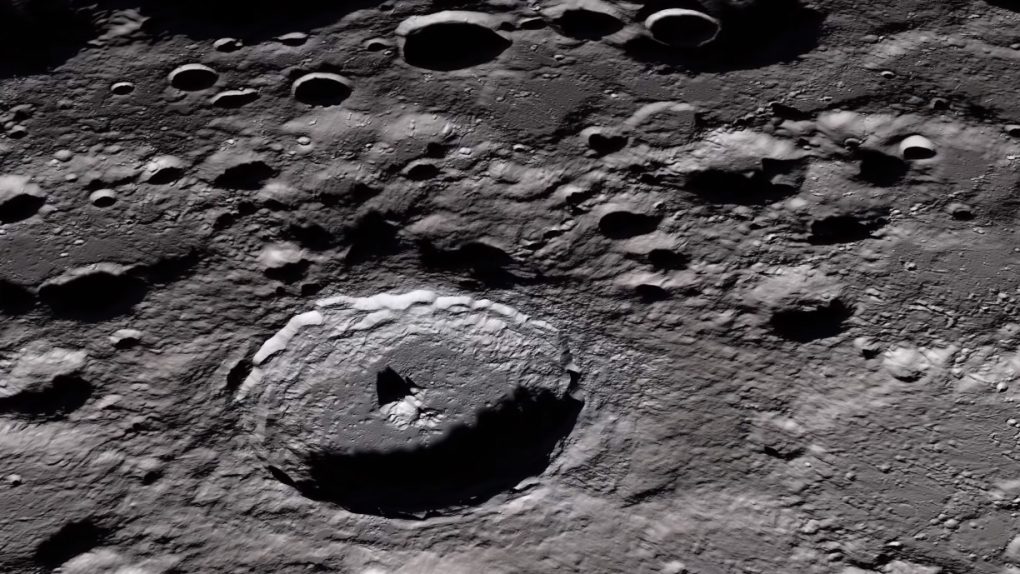The Moon apparently isn’t nearly as dry as scientists once thought. That’s the message from researchers using data from NASA’s Lunar Reconnaissance Orbiter to detect water molecules and the behavior of the moisture over the course of a lunar day.
Earth’s Moon was once assumed to be a dry and dusty place, but over time that image has changed. Scientists discovered ice present near its poles, and more recently we’ve learned that liquid water does indeed exist within the lunar surface material, called regolith. Now, the LRO has revealed that the water present on the Moon’s surface actually moves around during lunar daytime.
A study on the moisture of the Moon to be published in Geophysical Research Letters paints a vivid picture of the life water molecules on the surface. NASA sums up the water’s behavior as follows:
Water molecules remain tightly bound to the regolith until surface temperatures peak near lunar noon. Then, molecules thermally desorb and can bounce to a nearby location that is cold enough for the molecule to stick or populate the Moon’s extremely tenuous atmosphere or exosphere, until temperatures drop and the molecules return to the surface.
The Lyman Alpha Mapping Project used readings from the LRO to detect the presence of water in the regolith, allowing researchers to track the movement of moisture. It’s data like this that could be particularly useful when planning future missions and potentially even permanent settlements on the Moon.
Looking forward, NASA and other scientific groups have discussed the potential of using the Moon as a sort of jumping-off point for missions deeper into space. If water could be collected on the Moon it could prove to be a great resource for manned missions headed deeper into the solar system.








